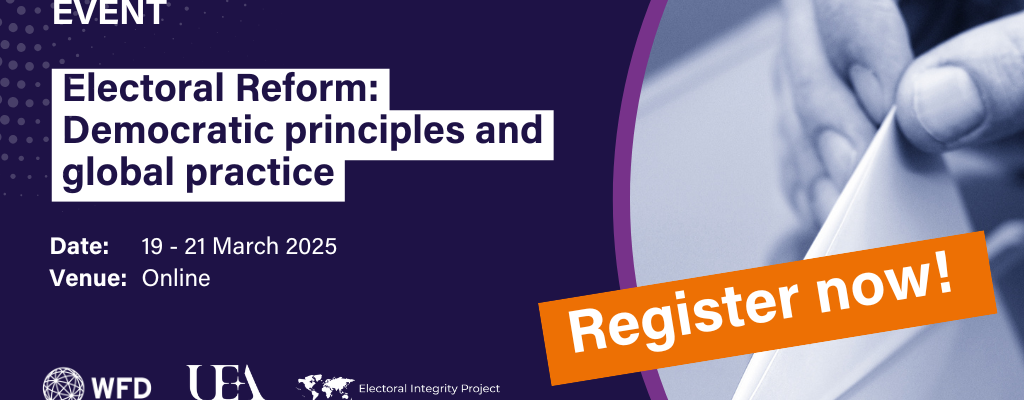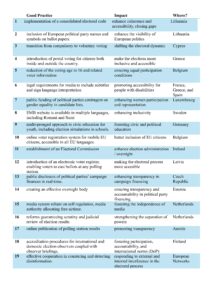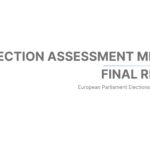
European Union,General,International
Presenting Electoral Reform Paper at the Electoral Integrity Project Conference
Brussels/Vienna, 19 March 2025: The Electoral Integrity Project and The Westminster Foundation for Democracy organised an online conference on “Electoral Reform: Democratic Principles and Global Practice” on 19-21 March 2025.
Armin Rabitsch and Markus Pollak from Election-Watch.EU presented their paper: What remains to be done: Thinking through Reforms of the European Parliament Elections using a powerpoint presentation.
The paper revisits the historical trajectory of European electoral reform and examines the reasons why certain reform efforts failed and others succeeded. Analysing Europeanisation as “bricolage” suggests that incremental, gradual changes in practices may lead to the eventual transformation of electoral practices. In this spirit, this paper exposes several good practices in EU Member States as collected by the Election Assessment Mission to draw lessons from successful reforms in Member States and stimulate reform at EU level and across Member States. It aims to raise awareness among national governments and EMBs about the necessity for change and enhanced collaboration in addressing the increasing complexities of the electoral environment.
As laid out in the paper, some of the most pressing issues can be best addressed by intensifying collaboration between European institutions and Member States to address inconsistencies in national electoral regulations and harmonising voting eligibility criteria.
In line with established theories of Europeanisation, change in a supranational organisation like the European Union is gradual and incremental. Often reform results from critical junctures, such as external shocks or internal resistance. The recent European legislation to regulate online space and campaigning as well as uphold media freedom, including the DSA, the TTPA, the EMFA), the Anti-SLAPP Directive, and the AI Act are good examples of legislation responding to new challenges.
However, when reforms are less urgent electoral reforms slip down the priority list following elections. One way of stimulating meaningful change in elections is through the identification and structured dissemination of good practice examples. When systematically organised, such examples provide a blueprint for replication, offering election management bodies (EMBs) and observer organisations actionable strategies to improve electoral processes. The 19 good practice examples collected by Election-Watch.EU during the Election Assessment Mission to the 2024 European Parliament elections serve as valuable models that can be adapted and replicated across different MS.

The focus of the conference convened by Prof. Toby James was on:
-
What principles should underpin the electoral reform process?
-
What are the barriers to ensuring that the electoral reform process is democratic, inclusive, transparent and consensus oriented?
-
How can public trust be maintained?
-
What interventions can be adopted to help to ensure ‘good’ electoral reform?
-
Case studies of electoral reforms where the electoral process was strengthened / undermined.
2024 EP elections, citizen led election observation, electoral reforms, participatory electoral reforms
 Election Assessment Mission Report with good practice examples published
Election Assessment Mission Report with good practice examples published
 Presenting Electoral Reform Paper at the Electoral Integrity Project Conference
Presenting Electoral Reform Paper at the Electoral Integrity Project Conference
 Social media monitoring of Austria’s general election campaign
Social media monitoring of Austria’s general election campaign
 How best to assess hybrid threats in elections?
How best to assess hybrid threats in elections?
 Telegram and its role in Austria’s 2024 election
Telegram and its role in Austria’s 2024 election